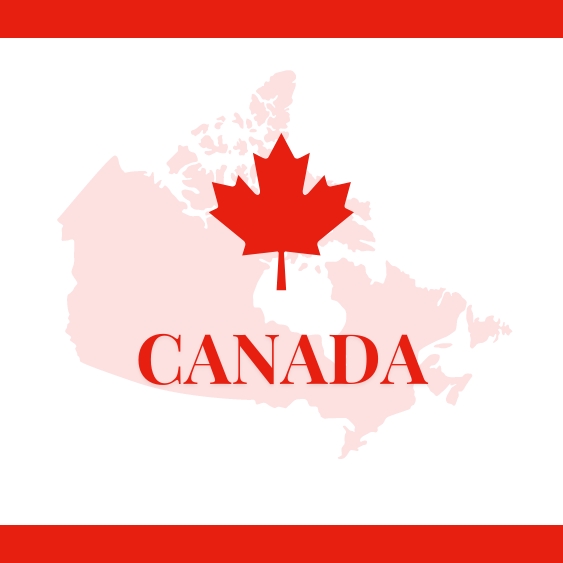Need More Information
Hotline
+1 (613) 291-5501

Canada
Spousal Sponsorship Canada
Spousal Sponsorship Canada
Canadian spousal sponsorship is how a Canadian citizen or permanent resident can sponsor their partner to come to Canada and live permanently. In Canada, we know how important it is for families to be together. For this reason, applications for spousal sponsorship are considered a top priority. Here is everything you need to know about sponsoring your spouse, common-law partner, or conjugal partner to Canada.
Know More
The Spousal Sponsorship Program in Canada is a component of Canada’s immigration system, enabling Canadian citizens and permanent residents to sponsor their spouses, common-law partners, or conjugal partners for permanent residency in Canada. The program aims to facilitate family reunification by allowing Canadian citizens or permanent residents to bring their loved ones to live with them in Canada.
First it is important to understand the distinctions between spouse, common-law, and conjugal partner relationships.
Spouse: The sponsored person is legally married to the sponsor.
Common-law Partner: The sponsored person and the sponsor have been living together in a conjugal relationship for at least one year continuously.
Conjugal Partner: The sponsored person and the sponsor have been in a genuine and continuing relationship for at least one year but have been unable to live together or marry due to extenuating circumstances.
All of them have distinct eligibility criteria and documentation requirements for immigration purposes. To delve deeper into the intricacies of these relationship types and gain comprehensive insights into how to apply depending of your relationship type, we invite you to read the full blog article, available here: Difference Between Spouse, Common-Law and Conjugal Partner.
Family Class (Outland) Vs. In Canada Sponsorship Class
The Spousal Sponsorship program comprises two main classes:
1. Family Class (Outland) Sponsorship Class
You should apply under the Family Class (Outland) sponsorship option if:
Your spouse/common-law partner (i.e. “the principal applicant”) lives outside of Canada
You are currently living in Canada with the sponsor but do not plan to stay in Canada for the duration of the application process
A downside to using this stream is that, until your application has been approved, living with your spouse may be difficult. However, your spouse can apply for a temporary visa to come to Canada while their outland sponsorship application is being processed.
2. In Canada Sponsorship Class
You should apply under the Spouse or Common-Law Partner in Canada Class (Inland) if:
You live with the sponsor in Canada
You hold a valid immigration status in Canada
You would like to apply for an open work permit in order to work in Canada while the application is in process
If your spouse or common-law partner is out of status in Canada, they may be able to submit under this stream as well while being protected under a public policy that allows them to stay in Canada until the application has been fully processed. The disadvantage to this particular stream, however, is that the applicant should refrain from travel outside of Canada while the application is in process.
How long does it take to sponsor your spouse or partner to Canada?
Sponsorship applications take approximately 12 months to process from start to finish. They are typically not processed much faster than 12 months, but they can take longer, depending on the nature of your case.
If you have a complicated case, or the visa office requires additional proof of your relationship, this will delay the processing of your case and it will take longer.
The best way to ensure your sponsorship application is processed as quickly as possible is to make sure it is done right the first time. The lawyers and legal professionals at HGC have helped thousands of spousal sponsorship applications. Find out how HGC can help bring your loved ones to Canada by taking our free online assessment.
In order to be eligible for spousal sponsorship of any kind, you need to prove that your relationship is legitimate. There are several factors that are taken into consideration by immigration officers, depending on the nature of your relationship.
Visa officers will consider a range of elements to determine if your relationship is genuine. Some of the elements they will consider are more traditional, like photos of your wedding that show members of your family in attendance. Others can be more unique to the cultural practices of the region.
If your relationship is unconventional, providing additional evidence of the genuineness of your relationship is recommended. Letters of explanation can also help a visa officer understand why your relationship might not have all the same indicators as a more traditional marriage from your cultural background. Be advised that marriage ceremonies that are conducted over the internet are not accepted for Canadian immigration purposes.
Read our full article here: 6 Reasons Your Sponsorship Application Could Be Denied
Can I re-apply if my spousal sponsorship application is refused?
If your spousal sponsorship application was refused, you have the option to re-apply. However, it is very important to address the reason for the refusal in your application with new information or documentation.
Can I cancel my spousal or partner sponsorship application?
You can withdraw your sponsorship application at any time before the person you’re sponsoring becomes a permanent resident of Canada.
Is there a limit to the number of spousal sponsorship applications accepted by Canada?
Unlike Parent and Grandparent sponsorship, there is no intake cap for spousal sponsorship. Canada continues to accept spousal sponsorship applications throughout the year.
Do I get permanent residence if I marry a Canadian?
No. Simply marrying a Canadian does not automatically give the spouse Canadian permanent residence. Once you are married or in a common-law relationship, you can then apply for a spousal sponsorship. Only after the application for spousal sponsorship is approved, will the married spouse become a Canadian permanent resident.
Can I sponsor my conjugal or common-law partner If I am legally married to someone else?
If you wish to sponsor your common-law partner but are legally married to another person, you must provide proof that your marriage has broken down and that you have lived apart from your spouse for at least one year. You can only count time physically separated from your spouse toward time cohabitating with the common-law partner you wish to sponsor. To demonstrate the end of your spousal relationship, you should provide additional documentation, such as:
a formal declaration regarding the end of the marriage and beginning of a common-law relationship
an official separation agreement
a court order in respect of custody of children, or
documents showing the removal of the legally married spouse from insurance policies or wills
Can I sponsor my common-law partner if we are not currently living together?
A common-law couple may be separated due to extenuating circumstances such as a family emergency, hostile country conditions, or employment or education-related reasons. To sponsor your common-law partner, you must have been living or have lived with your partner for at least 12 consecutive months in a marriage-like relationship. If you are not currently living with your partner at the time of applying, you must provide sufficient evidence that you have previously lived together and intend to live together in Canada upon being sponsored. You will also need to provide convincing evidence to show that while living apart, you have continued to maintain your common-law relationship.

